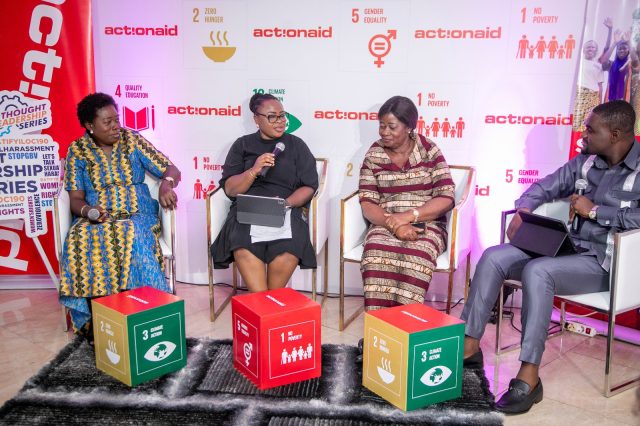By: Celestine Avi
A groundbreaking report by ActionAid International exposes the alarming extent to which fossil fuel and industrial agriculture sectors, major contributors to the climate crisis, are draining public funds in the Global South.
According to the report, these industries receive over US$600 billion in public subsidies annually, funds that could be redirected to critical development needs such as education and climate adaptation.
The report, titled How the Finance Flows: Corporate Capture of Public Finance Fueling the Climate Crisis in the Global South, reveals that an average of US$677 billion in subsidies is funneled to climate-destructive sectors in the Global South each year. To put this figure into perspective, it is enough to finance the education of all children in sub-Saharan Africa 3.5 times over. The fossil fuel sector alone receives a staggering US$438.6 billion annually, while industrial agriculture claims US$238 billion per year.
Disproportionate Climate Finance
Despite the escalating climate crisis, financial support from the Global North for climate-hit countries remains grossly insufficient. Climate finance grants amount to just 1/20th of the public funds being siphoned into fossil fuels and industrial agriculture in the Global South. As a result, renewable energy in these regions is starved of resources, receiving 40 times less public finance than the fossil fuel industry.
ActionAid International’s Secretary General, Arthur Larok, highlights the gravity of the situation: “This report exposes the parasitic behavior of wealthy corporations, which are draining the life out of the Global South by exploiting public funds while fueling the climate crisis.”
Corporate Capture of Public Finance
This sheds light on how multinational corporations, including fossil fuel giant Shell and agribusiness behemoth Bayer (the parent company of Monsanto), are capturing public finance in the Global South. These industries, responsible for ecosystem destruction and exacerbating climate injustices, continue to benefit from public subsidies while governments struggle to address the needs of their people.
Teresa Anderson, ActionAid’s Global Lead on Climate Justice and co-author of the report, emphasizes the urgent need for change: “It’s time for the Global South to stand up to the industries draining their finances and wrecking the climate. We must fix the finance flows that are fueling the crisis.”
Calls for Just Transitions

The report not only identifies the problem but also offers solutions. It calls for public finance to be redirected towards just transitions that prioritize people-led climate solutions. This includes scaling up decentralized renewable energy systems and supporting gender-responsive agricultural practices like agroecology. Furthermore, the report urges wealthy nations to provide trillions of dollars in grant-based climate finance to help Global South countries address the climate crisis.
*Communities on the Frontlines*
Testimony from climate-impacted communities, such as those in Nigeria’s Niger Delta, where oil extraction by companies like Shell has caused irreparable damage. “We have lost our way of life and there is no end in sight to our suffering,” says Jonah Gbembre, an activist from Delta State. He calls for an end to subsidies that support harmful fossil fuel companies and urges the government to invest in clean, alternative energy sources like solar and wind.

Global Action Needed
As the world prepares for COP29, the report calls for ambitious commitments from wealthy countries, including the regulation of the banking and finance sectors to end destructive investments and the transformation of international financial institutions. Only by redirecting public finance towards sustainable solutions can the Global South break free from harmful development pathways and secure a just, climate-resilient future.















